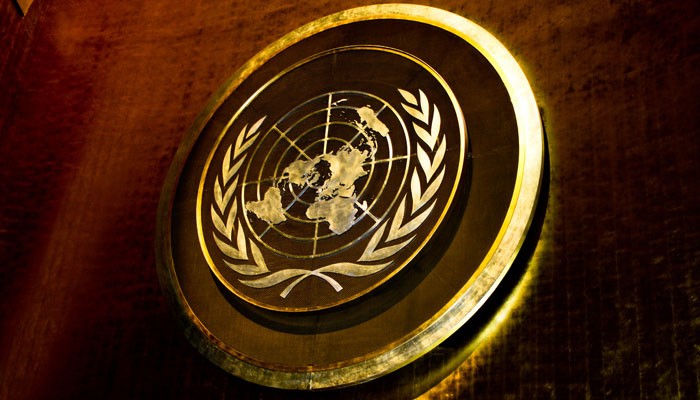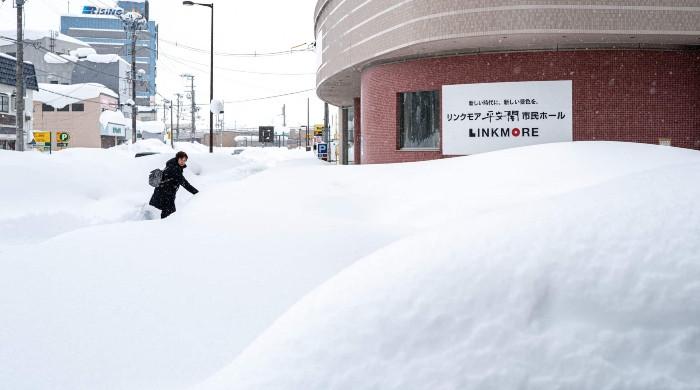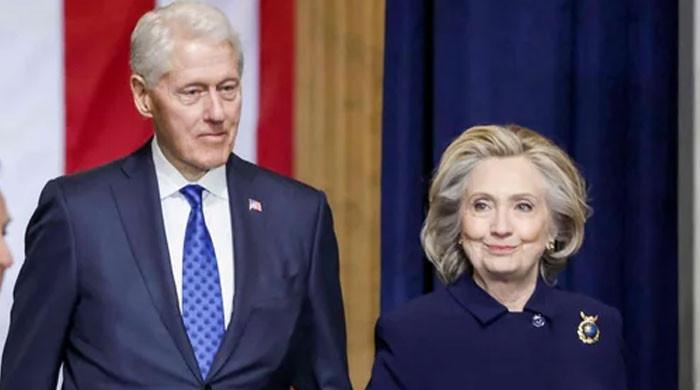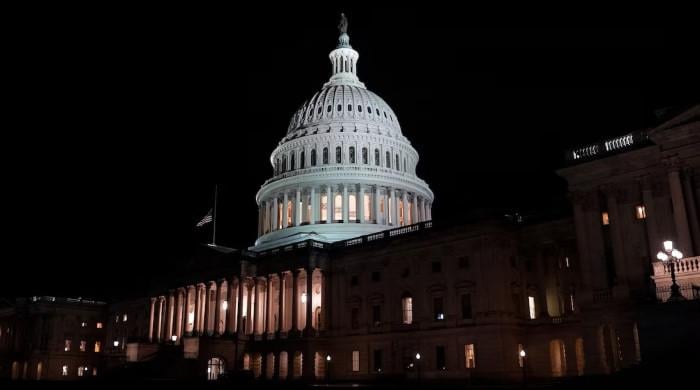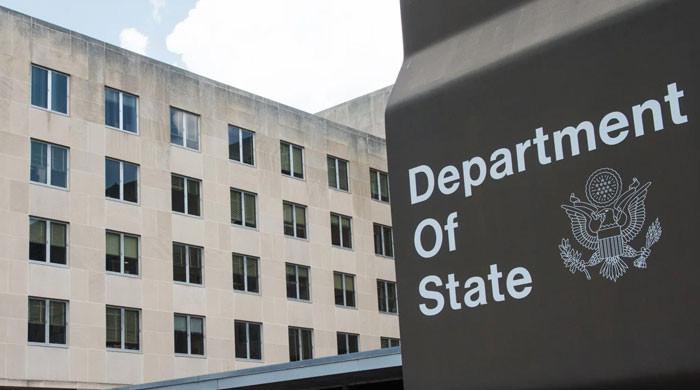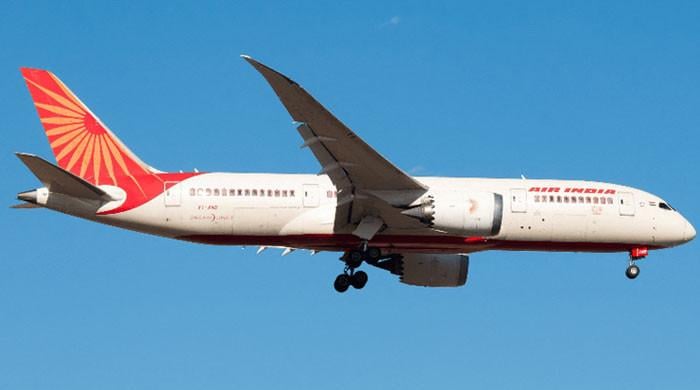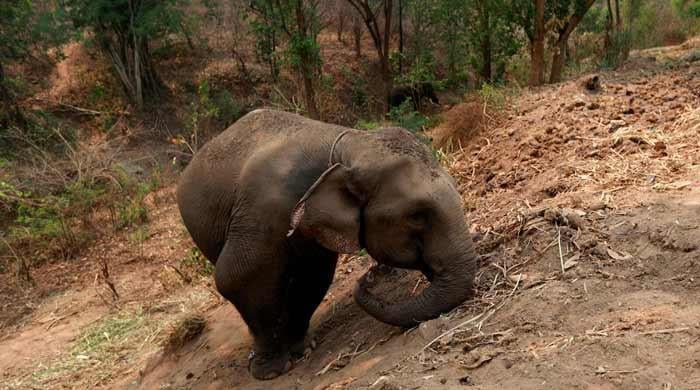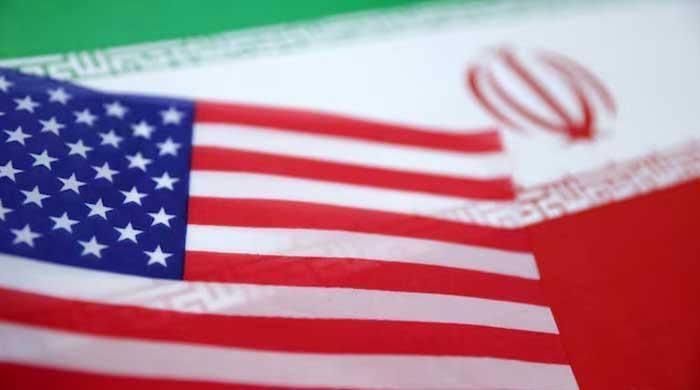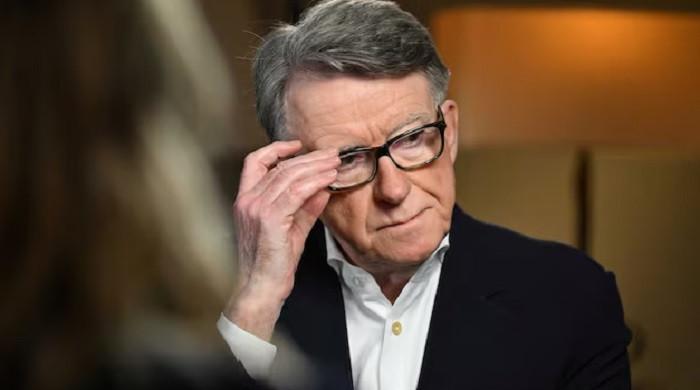India responds to Pakistan with barrage of accusations at UNGA
Swaraj rejected allegations Abbasi in which he accused India of state-sponsored terrorism
September 23, 2017
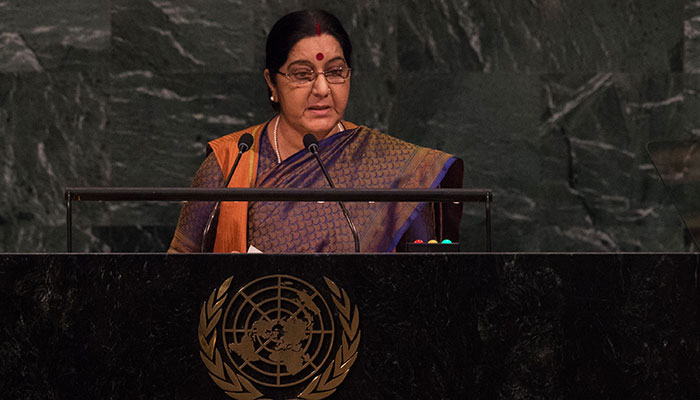
NEW YORK: Indian Minister of External Affairs Sushma Swaraj on Saturday addressed the 72nd session of the United Nations General Assembly (UNGA) and let loose a barrage of allegations aimed at Pakistan.
Addressing the annual session, Indian Foreign Minister Sushma Swaraj rejected allegations by Prime Minister Shahid Khaqan Abbasi at the world body earlier in the week in which he accused India of state-sponsored terrorism and violating human rights.
Swaraj said Pakistanis should look at the progress India had made since the two countries emerged on independence from Britain in 1947.
The Indian foreign minister claimed that Indian Prime Minister Narendra Modi had talked about dialogue with Pakistan soon after assuming power, but the offer was spurned and Prime Minister Shahid Khaqan Abbasi should explain and answer why the offer was not accepted.
"While India was engaged in efforts to fight poverty, Pakistan is engaged in fighting us,” alleged the Indian minister for foreign affairs.
"Why is it today India is a recognised IT superpower in the world, and Pakistan is recognised only as the pre-eminent export factory for terror?" Sushma Swaraj alleged at the General Assembly.
"We produced scholars, doctors, engineers. What have you produced? You have produced terrorists," she claimed.
Swaraj also renewed calls for speeding up reforms at the UN to expand the Security Council to include more member — India is a claimant.
India has repeatedly accused Pakistan of training, arming and infiltrating militants into Kashmir, a claim that Pakistan has denied.
Earlier on Thursday, Abbasi during his address at the UNGA highlighted the persistent human rights violations in Indian-occupied Kashmir (IoK), terming India's role in the region the "most intense example of foreign occupation".
Highlighting the struggle of the Kashmiri people for their right to self-determination, PM Abbasi said India refuses to implement the unanimous resolutions of the UN Security Council, which mandate a UN-supervised plebiscite to enable the people of occupied Kashmir to freely decide their destiny.
Abbasi mentioned to the attendees that the UN charter has over time been eroding slowly, with unresolved conflicts taking a much larger part of the headlines than before, the rampant Indian aggression in occupied Kashmir a stark example of that.
"Instead, India has deployed nearly 700,000 troops in occupied Kashmir to suppress the legitimate struggle of the Kashmiris to exercise their right to self-determination. This is the most intense foreign military occupation in recent history," he said.
He had also reiterated that Pakistan remains open to resuming a comprehensive dialogue with India to address all outstanding issues, especially Kashmir, and discuss measures to maintain peace and security.

